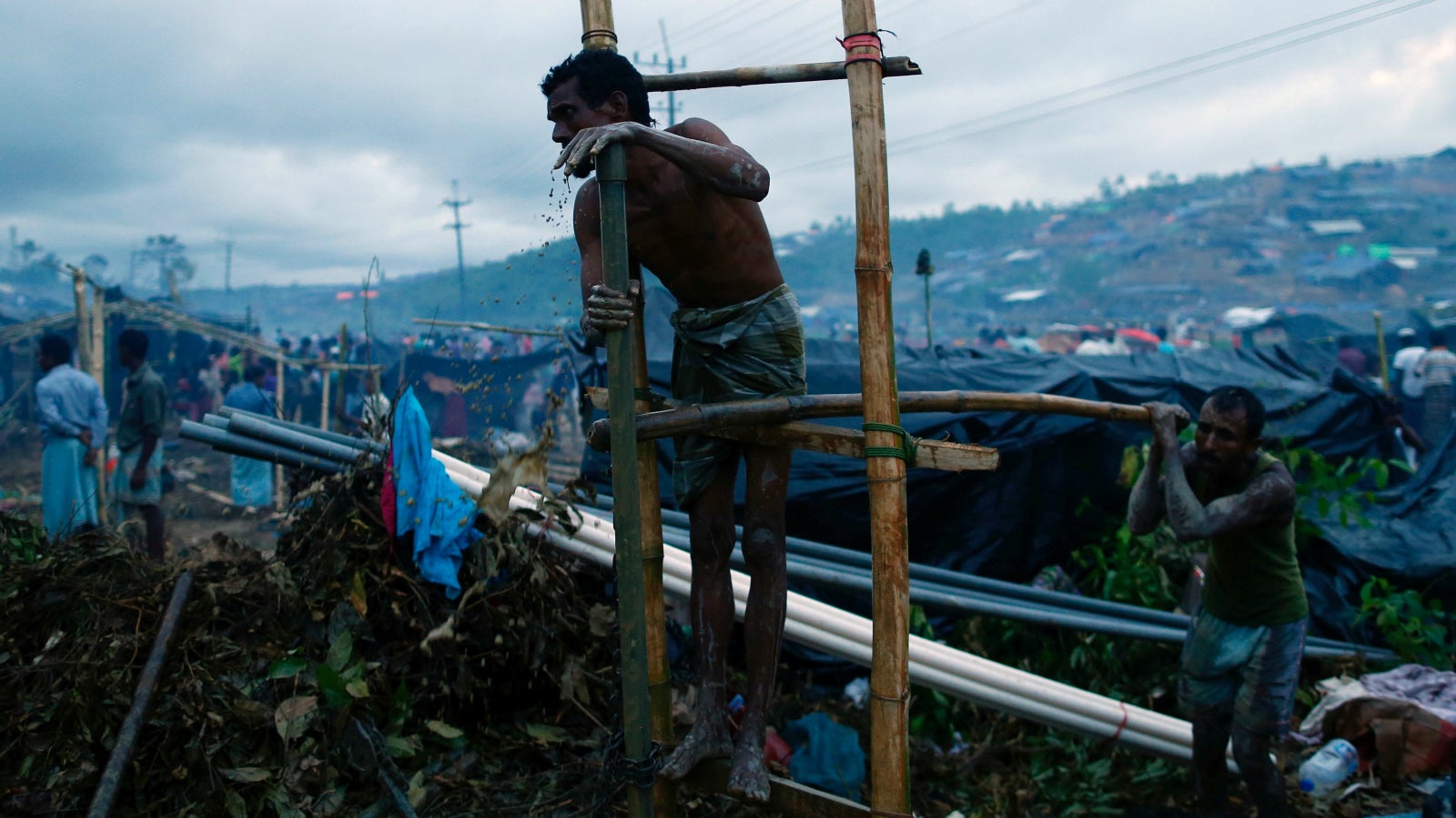As Myanmar’s Rohingya pour in, Bangladesh worries about space and radicalisation
United Nations, New York


United Nations, New York
This time last year, Bangladesh’s prime minister Sheikh Hasina sat with Myanmar’s de facto leader Aung San Suu Kyi on the sidelines of the UN General Assembly (UNGA) discussing, among other things, the plight of the Rohingya, a persecuted Muslim minority.
Under fire for allowing violence against the Rohingya to continue unabated, Suu Kyi won’t be attending the UNGA this year. Hasina, however, is here as Bangladesh finds itself in a tricky situation.
After Bangladesh opened its borders to the Rohingya on Aug. 25, over 400,000 have poured. Local authorities and aid agencies are struggling to cope with the exodus from Myanmar’s northern Rakhine region. At the same time, Dhaka is worried about the consequences of hosting such a large number of refugees, including the possibility of terror groups expanding their presence amid the chaos.
“Our main problem is the availability of space,” Masud Bin Momen, Bangladesh’s ambassador to the UN, told Quartz. “Space is scarce in Bangladesh, especially in that particular area already, from previous entries.” There may be nearly a million Rohingya refugees in Bangladesh currently, according to Momen’s reckoning. Even before the latest crisis began this August, Bangladesh was home to over 400,000 documented and undocumented Rohingya who had left Myanmar during previous outbreaks of violence.
Following the latest bout of strife, some 415,000 more have crossed into Bangladesh, as per the latest estimates from the UN, many with burns, bullet wounds, and, lately, mine injuries. But around 40% of these do not have access to primary health services, and nearly 300,000 people, including 154,000 children under the age of five and 55,000 pregnant women, are in need of food assistance.
“We know that Bangladesh, with the recent floods, is also facing its own difficulties,” Stephane Dujarric, spokesperson for the UN secretary general, said on Sept. 18. “Our humanitarian colleagues are putting a plan together, which will need substantial financial support from the international community, and are working hand-in-hand with authorities in Bangladesh.” He declined to provide a figure for the funding that will be required.
With Bangladesh in need of all the help it can get, Hasina is expected to raise the issue at every relevant forum over the next four days in New York, including during her general debate speech and meeting with UN secretary general Antonio Guterres on Sept. 21. A number of countries, including Turkey, India, Indonesia, Malaysia, Iran, and the UAE, have already sent aid into Bangladesh, while others have pledged millions of dollars in help.
“In strict economic terms, of course, it’ll put a strain (on Bangladesh’s economy) but that will not deter us from doing whatever is dictated by our conscience,” Momen said. “Our main thrust is that the international community can ensure the return of these people in safety and in dignity.” Densely-populated Bangladesh ranks among the world’s 50 poorest countries, with a per capita GDP of $3,980 in 2016.
So far, the UN and the international community have been unable to do anything to convince Myanmar’s government to stop the violence against the Rohingya. Last week, an exasperated Guterres said that Suu Kyi’s administration had been “completely deaf to our requests,” despite his personal intervention.
And the longer the refugees stay, the greater is Bangladesh’s concerns over attempts at radicalisation by groups like the Arakan Rohingya Salvation Army (ARSA), which operate in northern Rakhine. “You know, when you push people to a particular corner, when their backs are cornered, there are always elements in today’s world that take advantage of those situations,” Momen said.
Local authorities are, therefore, keeping a close eye on the refugee population, particularly young males. “We don’t want them to mix with the other population,” Momen said. “That is always a risk because the language or the dialect they speak is a little bit similar to what we do. So, if there are some smart ones, they can always mix with the mainstream population.”